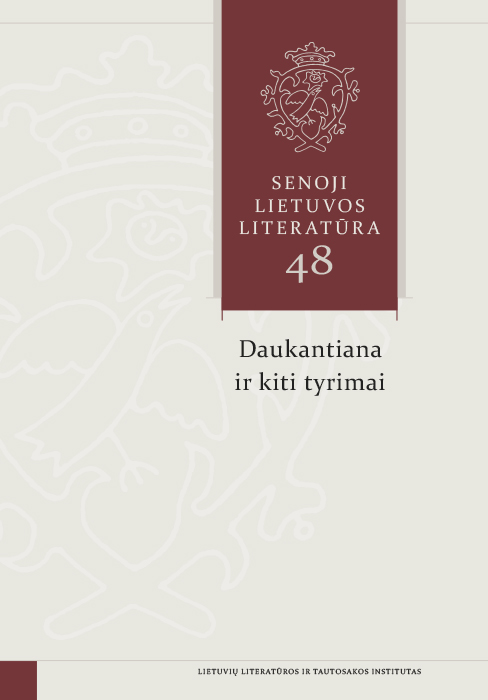The Impact of Baltic German Enlighteners on the Lithuanian Awakener Simonas Daukantas
Abstract
The books preserved from Simonas Daukantas’s personal library provide evidence that Daukantas knew the works by at least four Baltic German historians and publicists of the Enlightenment period. The most well-known Baltic German author on whose works Daukantas relied directly was Garlieb Merkel. Merkel’s position on the necessity to abolish serfdom strengthened Simonas Daukantas’s similar attitude. A comparative content analysis of the works by Daukantas and Merkel leads to a hypothesis that Merkel’s description of the Latvian nation and ethnographical- anthropological characterization of the Latvians inspired Daukantas to describe and characterize the Lithuanian nation in a similar way. Very likely, Merkel’s example encouraged Daukantas for the systematic use of the term ‘character of the nation’ in defining the essence of the nation, which is observed in Daukantas’s Būdas senovės lietuvių, kalnėnų ir žemaičių (The Character of the Ancient Lithuanians, Highlanders, and Samogitians) published in 1845. Some data indicate at least indirect contacts between Daukantas and Johannes Hermann Trey, the publisher of the first Latvian newspaper in Riga and a well-known Latvian popular enlightener. Education problems in Latvia and discussions about them in the milieu of the Baltic German pastors and teachers, as well as in the Latvian periodicals that had recently appeared must have consolidated Daukantas’s orientation towards popular (national) education activities.
